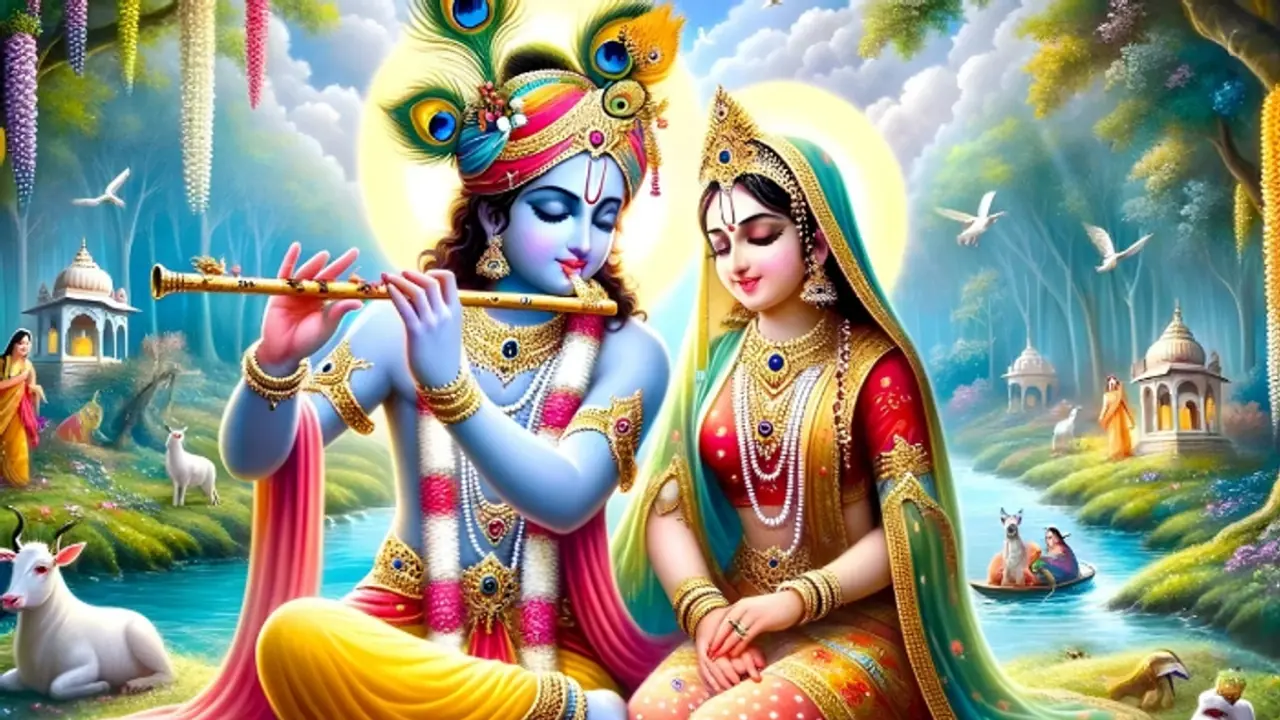Radhashtami is celebrated to honour the birthday or appearance day of Srimati Radharani, the beloved consort of Lord Krishna. It falls on the Ashtami (eighth day) of the Shukla Paksha (waxing phase of the moon) in the month of Bhadrapada, which usually corresponds to August or September in the Gregorian calendar.
Radha Ashtami, also known as Radhashtami, is a highly revered festival that deeply touches the hearts of devotees with love and devotion. This day celebrates the birth of Shri Radha Rani, a symbol of love, compassion, and devotion in Hinduism. Born in Barsana, near Vrindavan, Shri Radha occupies a special place in the hearts of her devotees, particularly in Braj Bhumi, where the love of Lord Krishna is fervently worshipped. The festival is not merely a celebration but also a spiritual reminder of the pure love and devotion towards Lord Krishna.

This year, Radhashtami falls on September 11 (Wednesday). This day is celebrated with immense devotion, particularly in Vrindavan and Barsana. The divine love between Shri Radha and Shri Krishna continues to be deeply felt and cherished, highlighting the enduring significance of their spiritual connection.
Significance of Radhashtami:
The significance of Radhashtami extends beyond merely celebrating the appearance of Shri Radha Rani. It symbolizes the ultimate union of the soul with the supreme soul. Shri Radha’s love for Shri Krishna represents the pinnacle of devotion, where the devotee merges with the divine. This day serves as a reminder that true devotion, akin to Radha's, is a complete and unwavering commitment to God. It is believed that worshiping Shri Radha on this day yields profound spiritual benefits, including the forgiveness of sins and devotion to Lord Krishna.
Radha exists in unity with Krishna, not apart from Him. She symbolizes the individual soul, while Krishna represents the universal soul. In spiritual terms, this signifies the merging of the individual soul with the universal soul, reflecting the ultimate unity of personal devotion with the divine essence.
Story:
Radha was born to King Vrishabhanu Gopa and Queen Keerthi. According to the Padma Purana, Radha emerged as a divine gift during a land yajna conducted by King Vrishabhanu. The king was blessed with Radha in the form of land, which he accepted with affection and raised as his daughter. Another legend suggests that when Lord Vishnu incarnated as Krishna, he asked other divine beings to take earthly forms. Consequently, Lakshmi, Vishnu’s wife, descended to Earth as Radha.
Why is it important to celebrate Radhashtami?
According to sacred texts, the love shared between Radha and Lord Krishna is seen as the purest form of love ever experienced. They are regarded as one soul, with Krishna merging into Radha Rani.
Radha Rani is revered as the divine mother of the universe. On the auspicious occasion of Shri Radha Ashtami, devotees seek her blessings for Krishna-bhakti or devotion towards Lord Krishna. Observing a fast and worshiping Radha-Krishna on Radha Ashtami is believed to absolve a person of their sins.
Radha Ashtami is considered a significant day, and it is believed that fasting on this day brings blessings of happiness and prosperity. Devotees chant the 'Radha Gayatri Mantra' or the 'Radha Ashtami Mantra' with devotion, and performing aarti is thought to help overcome obstacles and attain spiritual liberation.
Puja Vidhi:
On Radha Jayanti, devotees observe a fast with purity and devotion till noon. The idol of Radha is meticulously cleaned, bathed with panchamrit, and adorned with care. Devotees may use a gold idol or any other metal for worship, performing the rituals with utmost respect during midday.
Following the aarti, which includes the offering of incense sticks and lamps, the prasad (bhog) is distributed. Devotees also offer dhoop, flowers, incense sticks, akshat (rice grains), kumkum, roli, and other shringaar items to the idols on this auspicious day.
